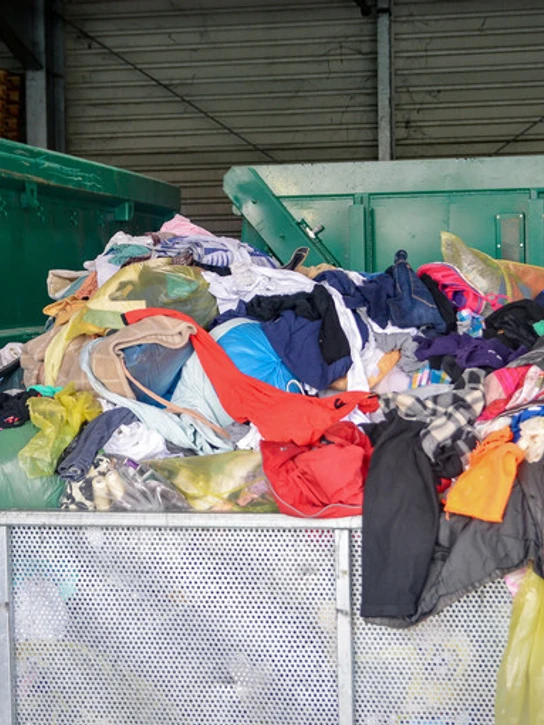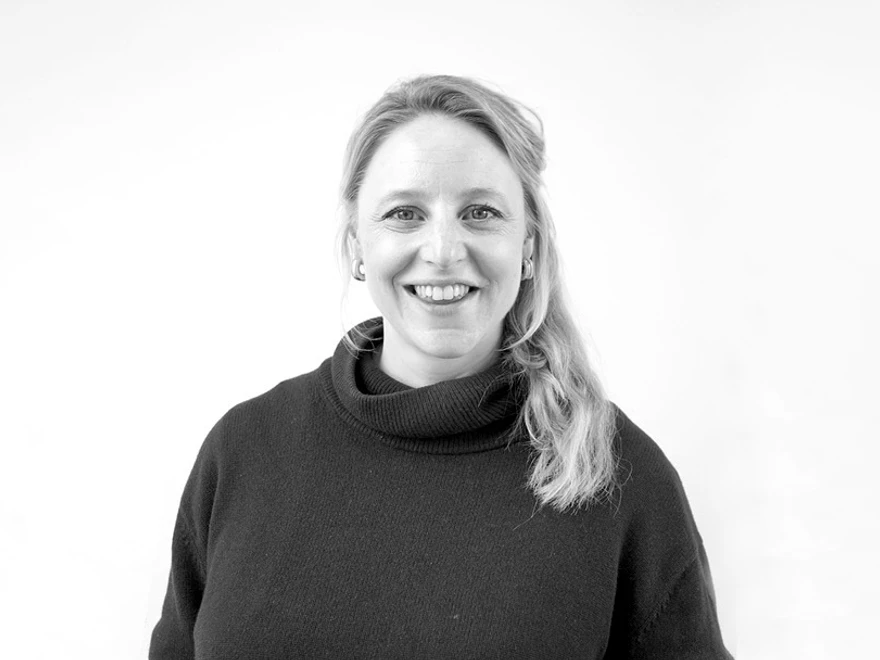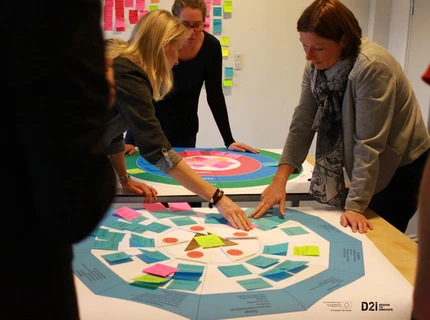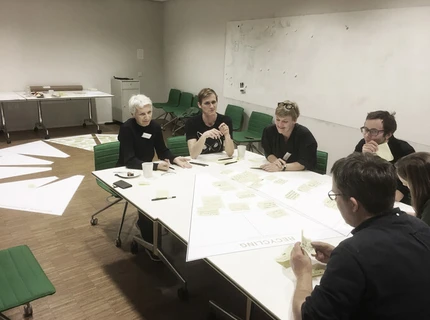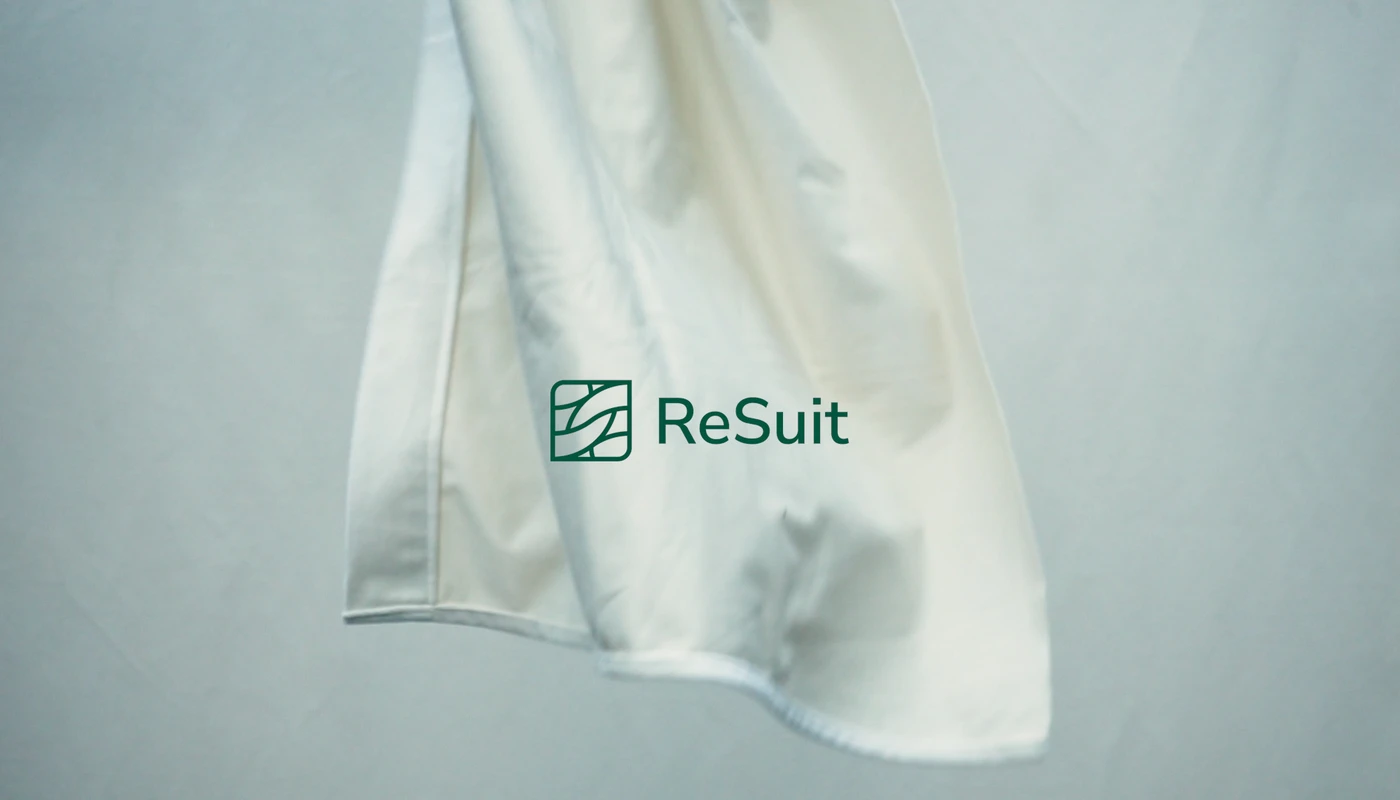
ReSuit
- Deltagere fra Designskolen Kolding
-
Karen Marie Hasling
Louise Ravnløkke
Ulla Ræbild
Sarafina Taudal
Mette Julie Bundgaard Nielsen
Cathryn Anneka Hall
- Forsknings- og udviklings projekttype
- Forskning og udvikling
- Projektperiode
- 2021 - 2024
- Projektledelse
Teknologisk Institute
- LAB
- LAB for Bæredygtighed og Design
- LAB tema
- Organisational Life
- Samarbejdspartnere
- BESTSELLER
Teknologisk Institut
A/S Dansk Shell
Elis
Aarhus Universitet
Fraunhofer
Behave Green
ReSuit (Recycling Technologies and Sustainable Textile Product Design)
Main actors
Recycler
Regarding design, the focus is on sustainable design of textile products – that is textiles that are designed with recycling in mind.
ReSuit has developed two processes for recycling textiles. Firstly, Dissolution technology (from partner Fraunhofer) which recycles polyester clothing for use in new textile materials. Secondly, (from Aarhus University) hydrothermal liquefaction technology which provides a solution for the more complex textile waste to be recycled into mainly non-textile products. With access to the development of these technologies, the challenge for researchers at Kolding School of Design was exploring how this information could be translated for the designer so clothing (after an extended use) could be recycled in the future.
Consumer
Led by partners Behave Green ReSuit investigated the behavior and motivations of consumers and how it might be possible to extend the use of clothing in fashion and laundry service industries. Researchers at Kolding School of Design worked collaboratively to support Behave Green explore what their consumer insights meant for design.
Designer
Led by Bestseller and in collaboration with Design school Kolding, ReSuit explored what design tools were required for designers to actively create more durable - longer lasting products. This culminated in Bestseller’s Circular Design guidelines and Kolding School of Design user cards. In addition, together with laundry service partner Elis, researchers explored how workwear clothing wears over time and how to extend the life of these garments by developing a sorting and quality guide.
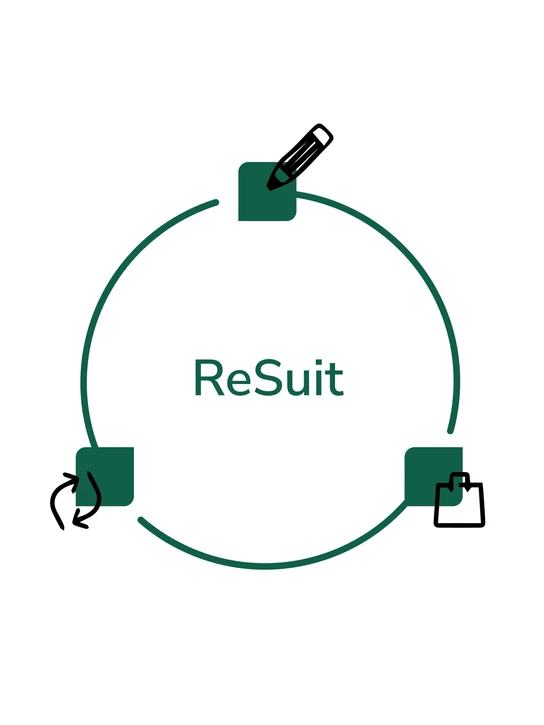
Project Partners
The Danish Technological Institute
The Danish Technological Institute is an independent, non-profit research and development institute that promotes the use of technological advances for the benefit of the business community and society. The Danish Technological Institute has over 1,000 specialists who collaborate across many scientific disciplines. In this project, the Danish Technological Institute contributes with specialized knowledge in areas including product chemistry and recycling technology.
Aarhus University
Aarhus University (AU), founded in 1928, is a nationwide university with 38,000 students, 1,800 Ph.D. students, and 8,000 employees, of whom 4,500 are researchers. AU has a strong international reputation across the entire spectrum of research and is among the absolute world elite in several research areas. The university ranks among the top 10 best universities founded within the last 100 years and has a long tradition of partnerships with leading research institutions and university networks worldwide.
Fraunhofer
The Fraunhofer Society, headquartered in Germany, is the world's leading organization for applied research. With its focus on developing key technologies crucial for the future and enabling the commercial utilization of this work by the business sector and industry, Fraunhofer plays a central role in the innovation process. As a pioneer and catalyst for groundbreaking developments and scientific expertise, Fraunhofer assists in shaping society now and for the future. Founded in 1949, the Fraunhofer Society operates 75 institutes and research institutions across Germany. The majority of the organization's 29,000 employees are qualified scientists and engineers who work with an annual research budget of 2.8 billion euros, 2.4 billion of which is generated through contract research.
BESTSELLER
BESTSELLER is an international, family-owned fashion company consisting of more than 20 individual fashion brands. In recent years, BESTSELLER has accelerated its efforts towards sustainable development of the fashion world, including last year's launch of the ambitious innovation platform 'Fashion FWD Lab,' aiming to create the sustainable solutions of the future in collaboration with the world's leading innovators.
Elis
Elis Denmark A/S (formerly Berendsen Textile Service A/S) offers sustainable textile and hygiene solutions and eco-labeled laundry service, where the consumption of water, energy, and detergents is below the Nordic Ecolabel's requirements. Elis was one of the first 10 companies in Denmark to be CSR-certified, and in 2019, Elis became the world's first company to be certified for the global goals by Bureau Veritas. Elis has been awarded a Crown Smiley by the Danish Working Environment Authority for making an extraordinary effort to ensure a high standard of occupational health and safety, and 85% of Elis Denmark's textiles have at least one of the labels: Nordic Ecolabel, EU Ecolabel, and OEKO-TEX. The Elis group is an international multiservice provider offering solutions in textile, hygiene, and facility services.
Kolding School of Design
Kolding School of Design is a self-governing higher education institution under the Ministry of Higher Education and Science. The school dedicates a significant part of its educational and research focus to sustainability, with an emphasis on innovative practice and close collaboration with companies, public institutions, and the wider community. In this project, Kolding School of Design contributes with design methods and knowledge about materials, production, and users.
Crossbridge Energy
Crossbridge Energy Refinery in Fredericia produces 35 percent of Danish fuel consumption. The refinery supplies surplus heat to district heating equivalent to more than 23,000 ordinary households' annual consumption of district heating, making the refinery Denmark's largest supplier of surplus heat. Moreover, the refinery is the world's third most energy-efficient of its kind. The refinery has successfully tested the possibility of refining bio-oil products in the existing plant and participates in several projects around greener fuels.
Behave Green
Behave Green is a green consulting firm specialized in understanding and changing behavior. Behave Green uses anthropological methods to gain insight into people's everyday lives and explore what motivates people to more sustainable behavior and consumption. In this project, Behave Green contributes with knowledge and studies about people and behavior, as well as experience in conducting behavioral studies and designing initiatives that create real sustainable solutions.
